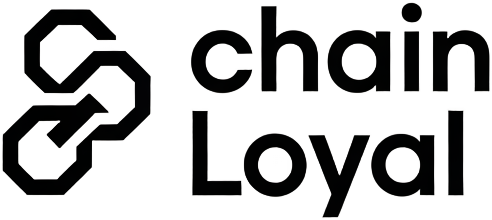
In the rapidly evolving landscape of decentralized finance, on-chain loyalty staking has emerged as a transformative mechanism for building both individual reputation and robust community identity. As DeFi matures into 2025, users are no longer satisfied with passive yield; they seek meaningful engagement, verifiable recognition, and a sense of belonging within their chosen protocols. This dynamic is driving the adoption of token-based reputation systems that reward not just capital, but also commitment and contribution.

The Mechanics of On-Chain Loyalty Staking
At its core, on-chain loyalty staking involves locking tokens within a protocol for a defined period. Unlike traditional staking, which focuses solely on financial returns, loyalty staking introduces layers of gamification and social signaling. Participants earn rewards not just for the amount staked or the duration, but for their holistic on-chain behaviors: governance voting, liquidity provision, active participation in community events, and more.
This multifaceted approach is exemplified by platforms integrating wallet analytics to track dozens of metrics across multiple chains. For example, some protocols now mint non-transferable NFTs as badges for achievements like early participation or sustained liquidity support. These digital credentials serve as visible proof of reputation, portable across ecosystems and immune to manipulation.
Reputation: The New Currency in DeFi
With trust at a premium in permissionless environments, staking identity DeFi models are rapidly gaining traction. Reputation systems assign scores based on verifiable actions recorded immutably on-chain, think governance votes cast, proposals authored, or tokens staked during turbulent periods. These scores are increasingly used to unlock higher-tier rewards or grant access to exclusive governance rights.
The impact is twofold: First, it incentivizes long-term alignment with protocol health rather than short-term speculation. Second, it creates an organic leaderboard effect where top contributors become recognized community leaders, a powerful motivator for ongoing engagement.
This trend mirrors broader Web3 developments such as Lens Protocol’s NFT-based profiles or Sony’s Soneium Score, both examples where user activity is transparently tracked and rewarded with status symbols that cannot be bought or traded. The result? A new paradigm where your DeFi reputation rewards are as valuable as your APY.
Strengthening Community Identity Through Verifiable Participation
The social layer has become inseparable from DeFi’s technical infrastructure. Communities thrive when members feel seen, and on-chain loyalty staking provides exactly that by making every meaningful contribution visible and countable. Whether it’s World Chess leveraging Algorand to let players own their achievements or DAOs tying rewards to verified contributors via identity protocols, the message is clear: transparency breeds trust.
This visibility also acts as a bulwark against Sybil attacks, malicious attempts to game systems via fake identities, since only unique addresses with provable histories can accrue status within these frameworks. As protocols refine how they measure and display loyalty credentials, expect even tighter integration between staking actions and community standing.
If you’re interested in exploring how these mechanisms drive deeper engagement across projects, see our analysis at how-on-chain-loyalty-staking-drives-community-engagement-in-defi-projects.
What sets on-chain loyalty staking apart is its ability to foster a self-reinforcing cycle of participation and recognition. As users accumulate token-based reputation, they become invested not just financially, but socially and emotionally in the protocol’s future. This deepens their commitment, making them more likely to advocate for the project, contribute to governance, and onboard new participants. Over time, these highly engaged members often emerge as trusted voices, ambassadors whose on-chain credibility is visible to all.
For protocols, this means that community health can be measured beyond raw TVL or APY numbers. Instead, metrics like the number of active badge holders, average reputation scores, and retention rates among top contributors become critical indicators of sustainable growth. By rewarding behaviors that align with long-term value creation, such as supporting protocol upgrades or mentoring newcomers, projects can cultivate a culture where loyalty is both recognized and rewarded.
Token-Based Reputation Systems: The Backbone of Trust
Modern DeFi platforms increasingly rely on token-based reputation systems to anchor trust within their ecosystems. These systems use immutable on-chain data to assign non-transferable credentials, such as NFTs or soulbound tokens, that reflect a user’s real contributions. Unlike off-chain reputation (which can be gamed or faked), these credentials are tamper-proof and instantly verifiable by anyone.
This approach not only democratizes access to status but also creates new forms of utility for loyal users. For example, high-reputation stakers may gain early access to product features, participate in governance with greater voting weight, or unlock higher yield tiers unavailable to casual participants. Such incentives help ensure that the most committed users are also those who shape protocol direction, a virtuous alignment between individual and collective interests.
If you want to see how loyalty staking programs are transforming user retention across leading platforms, check out our deep dive at how-on-chain-loyalty-staking-programs-are-transforming-defi-user-retention.
Looking Ahead: Evolving Standards for Reputation and Community Identity
The next wave of innovation will likely center around interoperability and portability of reputation across multiple protocols and chains. As multi-chain activity becomes standard practice for advanced users, being able to carry your hard-earned credentials from one ecosystem to another will be crucial for both individual mobility and cross-community collaboration.
Expect further refinement in how protocols measure engagement, moving beyond simple staking duration towards holistic models that reward educational outreach, proposal authorship, bug reporting, and other positive-sum activities. The integration of privacy-preserving identity solutions will also allow users to maintain sovereignty over their data while still proving their legitimacy within any DeFi environment.
Ultimately, on-chain loyalty staking is redefining what it means to belong in decentralized finance. It’s no longer just about capital at work, it’s about visible contribution, shared values, and the emergence of genuine digital communities anchored by transparent incentives. As these systems mature into 2025 and beyond, expect reputational capital to become every bit as valuable as financial capital within the most vibrant DeFi ecosystems.






